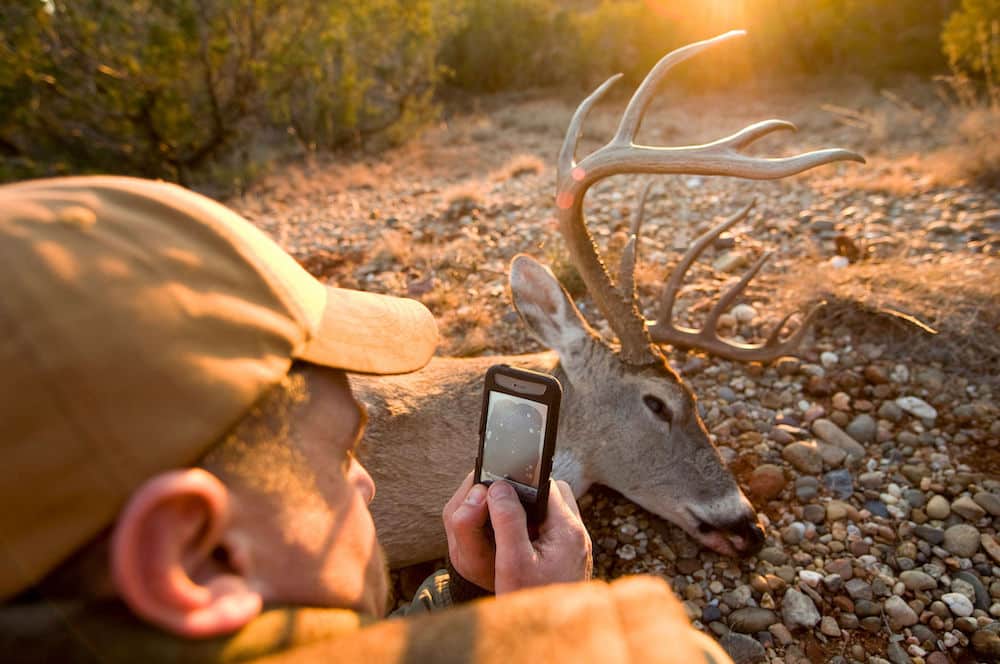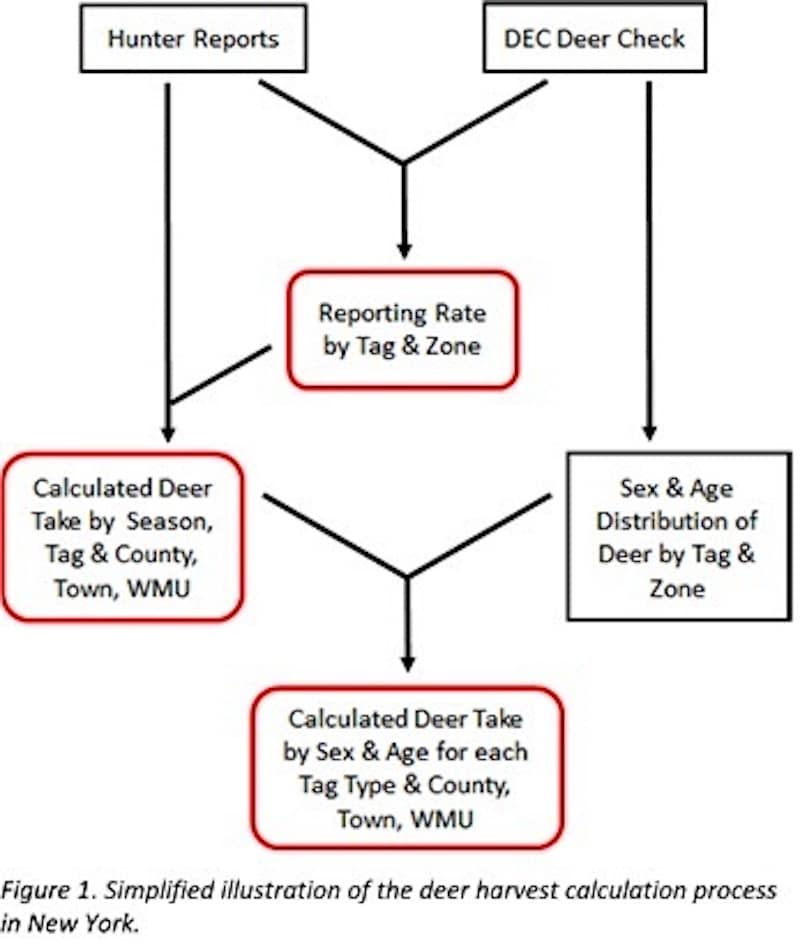Wildlife populations weren’t always plentiful and bountiful like they are today. In fact, bison were hunted to near extinction in the late 1800s, and deer and turkey populations also suffered because of unregulated hunting. Now, state wildlife agencies carefully monitor game populations and set bag limits based on information obtained through hunter-harvest reporting efforts.
Kyle Garrison, an ungulate specialist for the Washington Department of Fish and Wildlife, manages and monitors ungulates hunted in the state using hunter reporting. He said hunters play two crucial roles in wildlife management.
“Hunters provide (state agencies) with monetary resources through license sales and equipment purchases, and (states) use that money to manage wildlife populations. But that’s not all hunters provide to us. They give us information on their harvest through harvest reporting.”

Reporting is essential for agencies and biologists to know how many animals are being harvest in any given year. Photo Credit: John Hafner
In its simplest form, harvest reporting tells state agency staff and biologists how many animals hunters take from the landscape. Most states require hunters to report their harvest. State agencies collect this information to watch population numbers and make science-based decisions regarding the number of tags and permits they issue. If they distribute too many permits, populations can struggle to rebound and sustain themselves. If they distribute too few permits, animals can over-browse the landscape and suffer from starvation. Healthy populations also ensure hunters have plenty of opportunities.
“We take this seriously,” Garrison said. “We make sure we’re getting accurate information so we can manage that species in a sustainable way and continue to offer hunting opportunities. If we have a poor idea of harvest and unknowingly overharvest that population, it’s only a matter of time before we get feedback saying we have fewer deer, so we have to cut back on permits and opportunities. Nobody wants us to do that. We want consistency.”
Although all states use the collected information similarly, the harvest reporting process and information collected is different from state to state.
For example, Garrison said reporting for big game and turkey hunters in Washington is conducted at the end of the respective season. The state requires all hunters to fill out an online report on each species, whether they hunted or harvested an animal or not. Reporting is mandatory, so if a hunter doesn’t have online access, they can relay the information by phone to a WDFW customer service representative. The state collects data on where the person hunted, how many days they hunted in particular units, if they harvested an animal and where, and details about the animal itself. The online reporting process accepts information only for the seasons and licenses the hunter obtained.

The above graph is a figure from NewYork.gov. Photo Credit: NewYork.gov
In contrast, the New York Department of Environmental Conservation makes hunters report their deer harvest within seven days using either the DEC’s automated phone report system, an online process or a mobile application. Only hunters who shoot an animal are required to report. In general, they must include their hunter ID number, date of birth, location and date of kill, and the hunting season in which it was taken. Some species require hunters to report the implement used, animal’s sex or other defining characteristics. To complement the effort, DEC staff physically examine or check 1,000 to 14,000 hunter-harvested deer each fall at venison processing facilities to gather biological data about the harvest, such as age, sex and antler measurements. Therefore, reporting those details is optional for hunters, and if an evaluation is performed the data is cross-referenced.
Additionally, the WDFW and many other states use the collected information to identify total hunter numbers and assess hunting pressure. Staff also determine the number of hunters who use bows and firearms so they can allocate special permits proportional to the number of users in each group.
“If we don’t have a good, accurate representation of the take, effort and participation for a specific weapon type, we can’t make sure we’re allocating for that,” Garrison said. “(From the reports), we know the majority of hunters are modern firearm hunters, so the majority of special tags are allocated to firearm hunters, but this method ensures bowhunters are still getting their fair share.”
Many states also evaluate hunter effort, which is the number of days spent hunting compared to the number of animals harvested. That ratio gives agencies a good idea of how many animals are on the landscape and helps them gauge hunter satisfaction. Hunting shouldn’t be extremely easy, but it shouldn’t be painstakingly difficult, either.
Hunter-reported information is the best and easiest way for states to gather a large amount of game-related information from across the state. Even though it’s mandatory for most hunters, depending on where they live, hunters should take pride in knowing they’re doing their part to ensure game populations remain healthy and stable, and each species will be available to hunt for future generations.
“A lot of hunters are skeptical about how we use that information or why we’re asking for it,” Garrison said. “Maybe they think it’s not worthwhile, but in a state like ours, whitetail deer are a difficult species to monitor. They’re secretive and live in heavily forested landscapes, so harvest statistics are extremely important for us to monitor and manage that species.”
Read your agency’s website for reporting guidelines and methods. Please note: You might also be required to use a transport tag, harvest record card, or something similar to move and transport your kill legally.